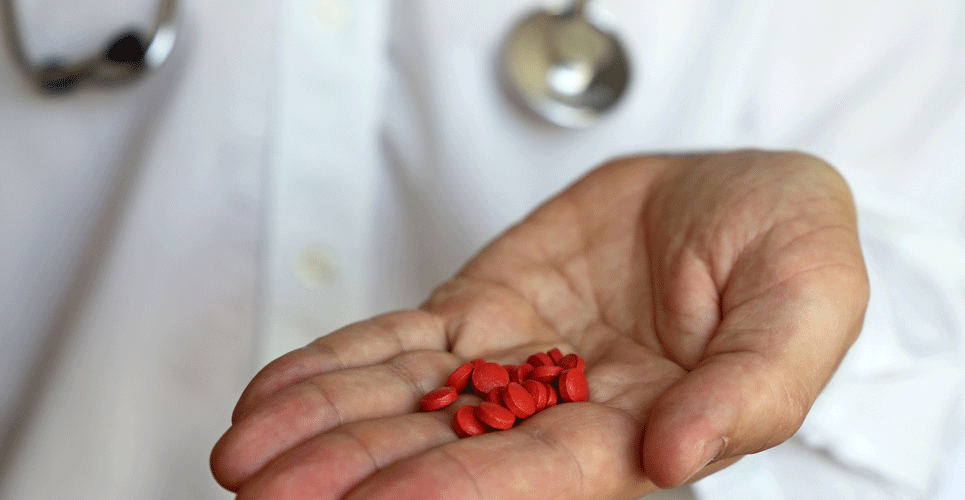Fluvoxamine given to those with risk factors for COVID-19 hospitalisation led to a reduced overall time spent in emergency care.
Patients given fluvoxamine and with one or more risk factors for severe illness in COVID-19 spent less time in emergency care when given the drug within 7 days of symptom onset. This was the main conclusion of a study from researchers based at the Department of Medicine, Pontifícia Universidade Católica de Minas Gerais, Belo Horizonte, Brazil. Although vaccination against COVID-19 has become a priority across the globe, prior to the widespread availability of vaccines, much attention was focused on the repurposing of existing medicines as treatments for the virus. One such drug is the antidepressant fluvoxamine which is an agonist for the sigma-1 receptor, a chaperone protein at the endoplasmic reticulum with anti-inflammatory properties. Moreover, there is some evidence from one small randomised trial in 152 patients with COVID-19, demonstrating that those given fluvoxamine had a lower likelihood of clinical deterioration over 15 days.
For the present study, researchers sought to provide more evidence for the value of fluvoxamine in COVID-19. They performed a randomised, placebo-controlled trial among individuals who presented at an outpatient care setting with acute symptoms consistent with COVID-19 infection. For the study, the team recruited patients with at least one additional risk factor for more severe illness e.g., diabetes, hypertension, symptomatic asthma etc., and a positive rapid antigen test for COVID-19. Individuals were randomised 1:1 to receive fluvoxamine 100 mg twice daily for 10 days or matching placebo within 7 days of the onset of COVID-19 symptoms. The primary outcome was a composite endpoint of medical admission to a hospital setting due to COVID-19-related illness but who remained longer than 6 hours or who were hospitalisation due to progression of their illness within 28 days of randomisation. Several secondary outcomes were measured including hospitalisation for COVID-19, time to hospitalisation, number of days in hospital.
Findings
A total of 1497 patients with a mean age of 50 years (58% female) were randomised to either fluvoxamine or placebo. Overall, 180 patients assigned to fluvoxamine and 251 given placebo had any form of interaction with a COVID-19 emergency setting (relative risk, RR = 0.73, 95% CI 0.62 – 0.88). In the treatment group, 11% of participants compared with 16% in the placebo arm had the primary outcome event, of which 87% were hospitalisations, (RR = 0.69, 95% CI 0.53 – 0.90), giving a number needed to treat of 20 (i.e., 1/0.05).

There were no significant differences for any of the secondary outcomes, e.g., for hospitalisations ,the rates were 10% vs 13% (fluvoxamine vs placebo, p = 0.10). In addition, there 17 deaths in the treatment arm and 25 in the placebo group which was also non-significant.
The authors commented on how use of fluvoxamine for 10 days, was associated with a clinically important absolute risk reduction of the primary outcome. Furthermore, a limitation was the the study was undertaken before the more widespread availability of COVID-19 vaccines hence it remains unclear as to the effectiveness of fluvoxamine in those who have been vaccinated.
Citation
Reis G et al. Effect of early treatment with fluvoxamine on risk of emergency care and hospitalisation among patients with COVID-19: the TOGETHER randomised, platform clinical trial. Lancet Glob Health 2021

